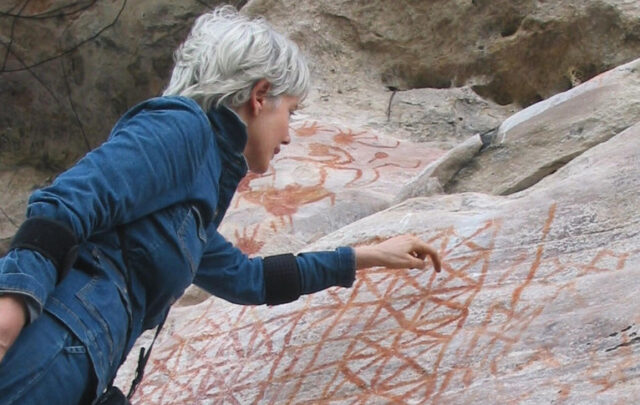Click on the headline (link) for the full text.
Many more articles are available through the Energy Bulletin homepage
The Lowdown on Dirt: It’s Disappearing
Tom Paulson, Seattle Post-Intelligencer
The planet is getting skinned. While many worry about the potential consequences of atmospheric warming, a few experts are trying to call attention to another global crisis quietly taking place under our feet. Call it the thin brown line. Dirt. On average, the planet is covered with little more than 3 feet of topsoil — the shallow skin of nutrient-rich matter that sustains most of our food and appears to play a critical role in supporting life on Earth. ‘We’re losing more and more of it every day,’ said David Montgomery, a geologist at the University of Washington. ‘The estimate is that we are now losing about 1 percent of our topsoil every year to erosion, most of this caused by agriculture.’
(21 January 2008)
Cow-belching study aims to cut methane
Yomiuri Shimbun, Washington Post
TOKYO – Researchers have stumbled on a way to stop cows from emitting methane – a potent greenhouse gas – when they belch, a finding that could help the fight against global warming.
Methane generated when livestock belch while eating is said to account for about 5 percent of global greenhouse-gas emissions. But supplementing the animals’ diet with cysteine, a type of amino acid, and nitrate can reduce the methane produced by the animals, according to the researchers.
Methane is generated in the stomachs of ruminants, such as cows and sheep, as bacteria break down plant fibers. The gas is emitted into the atmosphere when the animals belch as they chew cud.
(22 January 2008)
FAO sees record world food prices staying
Robin Pomeroy, Reuters
Record food prices are unlikely to ease in the foreseeable future, as high grain demand and low stocks mean the world remains vulnerable to possible food shocks, a United Nations expert said on Monday.
Efforts to increase wheat output may not be enough to offset soaring demand and bring the cereal off the all-time price highs it is continuing to hit, said Abdolreza Abbassian, grains economist at the Food and Agriculture Organisation (FAO).
(21 January 2008)
Long period of rising food prices forecast
Javier Blas, Financial Times
Scarcity of water and arable land means that the boom in food prices could last longer than most expect, a new study has warned.
The report, to be published on Tuesday by the UK-based consultants Bidwells Agribusiness, said the boom – until now fuelled by rising demand from emerging countries and the biofuels industry – would be exacerbated by supply constraints.
Richard Warburton, head of Agribusiness at Bidwells, said it was impossible to know yet whether the agricultural market was facing a structural or a cyclical change. But he warned that, even if it were cyclical, “we are up against a long cycle of rising prices”.
(21 January 2008)
Care about the environment? Eat less meat
Peter Fricker, Globe & Mail
Last week, Rajendra Pachauri, the head of the United Nation’s Nobel Prize-winning scientific panel on climate change, asked the world to “please eat less meat.” Speaking at a press conference in Paris, he said meat was a very carbon-intensive commodity, a fact established by UN research showing that livestock production creates more greenhouse gases than all forms of transport combined.
So the top man at the world’s most important agency dealing with climate change (the planet’s biggest problem) is urging us all to cut meat consumption to address the issue. Is the Prime Minister ordering Environment Canada to draft guidelines for Canadian consumers? Is Parliament debating the matter? Are environmental groups demanding immediate action?
Unfortunately, Mr. Pachauri’s plea will cause barely a ripple in political, media or environmental circles. Even being chair of the International Panel on Climate Change (IPCC) doesn’t guarantee many people will want to hear this particular inconvenient truth. It’s interesting to note that he followed his statement by saying: “This is something that the IPCC was afraid to say earlier, but now we have said it.”
What was the IPCC afraid of? This hasn’t been reported, but one could speculate that the global livestock industry and others with a vested interest in meat production will not take kindly to Mr. Pachauri’s remarks. Neither will the politicians they lobby, who also hate having to tell citizens they need to make lifestyle changes to save the planet.
Even environmental groups are shy about touching this one.
Peter Fricker is the projects and communications director of the Vancouver Humane Society.
(23 January 2008)





